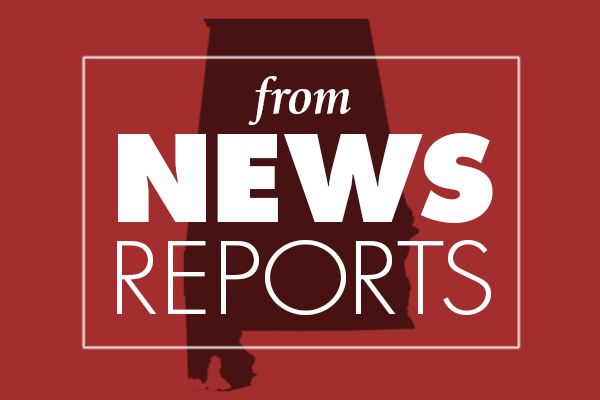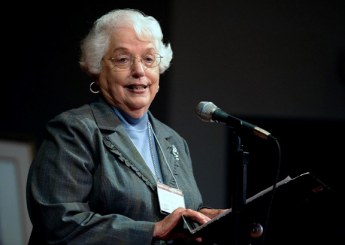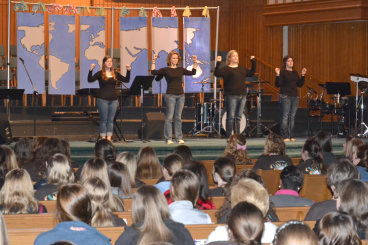Two Alabama missionaries currently on stateside assignment cannot return to the missions field without signing the 2000 Baptist Faith and Message.
Richard (Rick) and Nancy Dill recently returned from serving as church planters in east Germany to serve stateside as missionaries-in-residence at Ouachita Baptist University in Arkadelphia, Ark.
Avery Willis, International Mission Board (IMB) senior vice president for overseas operations, called the Dills Oct. 10 believing the couple was less than a month away from returning to the field.
Willis talked with Rick Dill, who grew up in First Baptist Church, Jasper, and explained to him that missionaries who are on stateside assignment and have not signed the 2000 Baptist Faith and Message will not be allowed to return to the field.
Willis’ statement was confirmed by the IMB in an email statement to The Alabama Baptist.
“Just as new missionaries are expected to affirm their sympathy with Southern Baptist beliefs before being sent overseas, missionaries on stateside assignment are expected to express their affirmation before being returned to the field,” Willis said in the email statement.
Rick Dill said he reminded Willis that he and Nancy, who is originally from First Baptist Church, Oneonta, declined to sign the 2000 Baptist Faith and Message in February after the first request was made by IMB President Jerry Rankin in January. Dill also noted that they were not planning to resign.
Rick Dill said that because Willis had wrong information about their date to return to Germany, it exposed current IMB strategy in obtaining missionary signatures.
Rick Dill said Willis called two other couples that same day who were within two weeks of departure and had not signed the faith statement.
Willis is calling missionaries at a vulnerable point, Rick Dill explained.
Missionaries are just weeks away from returning to the field. Their belongings have been shipped, and they are emotionally set to go back, Rick Dill noted.
Another IMB official confirmed that on Oct. 10 Willis did make calls to three missionary couples on stateside assignment, including the Dills, who had not signed. His intent was to convince the couples to sign or prevent them from returning to the field, Rick Dill noted. The other two couples signed.
Rick Dill said Willis made the comment, “We thought you would either sign or resign.”
But “we are not going to change our minds nor are we going to argue,” Rick Dill said. “I said at least now we have plenty of time to raise support to go back without the IMB.”
Nancy Dill said, “We are happy to be the people who make [the IMB] say (that we are terminated).”
“God will take care of us, Rick Dill said. He also noted that Texas Baptists are helping missionaries who leave the IMB because they refuse to sign the 2000 Baptist Faith and Message.
While rumors that the Dills have already been fired from the IMB are circulating, Willis said this is not true.
“Rick and Nancy Dill have not been terminated,” Willis said in his statement. “They are fine missionaries and we would hate to lose them.” In 1992 the Dills became the first IMB missionaries to move into east Germany following the fall of the Berlin Wall.
Still, “we have asked them to decide whether they will demonstrate their doctrinal accountability to Southern Baptists by affirming the current version of the Baptist Faith and Message,” Willis said.
“Documents on the subject written by Jerry Rankin and Don Kammerdiener have been sent to them,” Willis noted. “We are hoping they will decide to affirm the Baptist Faith and Message before the time comes for them to be released to return to the field in May.”
Rankin has yet to announce what penalty will come for missionaries who refuse to sign the 2000 Baptist Faith and Message. But 13 missionary units (26 people) have resigned since February, attributing Rankin’s request as a factor in their decision, IMB officials reported. The resignations of three other units (six people) are waiting for trustee action during the board’s November board meeting. Board officials estimate that slightly more than 1 percent of the missionaries have not announced their decisions.
A total of 5,437 missionaries currently are serving through the IMB.
The Dills are the first reported missionaries to refuse to sign as well as decline to resign after being confronted by top IMB officials.
“The bottom line is, we are terminated because we are not going to sign and we are not going to resign,” said Nancy Dill. “They are saying it but not saying it.”
While IMB officials have yet to use the word “fire” or “terminate,” Willis said in a news release from the IMB that a timetable has been established for resolving the issue. “What is happening now is that missionaries are being asked to resolve the issue in the next two or three months,” he said, noting missionaries are not being told to change their personal convictions.
“Southern Baptist missionaries are godly people with God’s passion for a lost world,” Willis explained. “We would hate to lose a single one of them.
“But Southern Baptists deserve to know that their missionaries serve in harmony with the deeply held convictions they have expressed in the Baptist Faith and Message,” he said. “We believe it is a matter of integrity for missionaries to be honest with Southern Baptists and promise to honor the churches’ convictions in the ways they teach and minister.”
In January 2001, IMB trustees voted their “whole-hearted” endorsement of the Baptist Faith and Message statement as “the standard for carrying out the program and ministries” of the IMB. They also strongly affirmed the personal beliefs of the agency’s missionaries and key stateside staff members.
A year later, Rankin sent a letter to missionaries, asking them to take the initiative of affirming the 2000 version of the faith statement, just as they had affirmed earlier versions when they were appointed. In the ensuing nine months, overseas leaders have talked with missionaries who voiced questions and reservations and the vast majority have signed the affirmation.
In his latest letter to missionaries who have yet to sign the statement, Rankin said again that “allowance is provided for stating areas of disagreement. However, there cannot be flexibility in being unwilling to be doctrinally accountable and assure Southern Baptists that we will work in accord with our confession of faith and not contrary to it. To do so would erode the credibility and support of the IMB and to bring into question your colleagues around the world.”
Nancy Dill said she knows of other missionaries who signed because they are too committed to their ministries to leave or out of fear of losing their jobs.
While the Dills have served in Germany for 20 years, they said “serious theological changes … made in the 2000 document disturb us greatly and for that reason we cannot sign.”
They outlined four reasons:
1. Removal of the statement “the criterion by which the Bible is to be interpreted is Jesus Christ.”
“The center of our faith is Jesus Christ,” they said in a written statement. “He certainly is the criterion by which the Bible is to be understood and interpreted.”
2. Use of the expression “priesthood of believers” instead of “priesthood of the believer.”
“The authors of the Baptist Faith and Message 2000 seem to mistrust or minimize the importance of the personal experience of the individual believer and his personal responsibility before God,” they wrote. “God speaks to each and every individual. We are called to be His priests. His Spirit works within us individually (as well as corporately), and finally, we will be called to account for our lives as His servants.”
3. Role of women in marriage.
“There is no question that Paul was stressing the mutual submission that should be a part of every marriage relationship (Eph. 5:21–22),” the Dills wrote, pointing out that verse 21, which says “husbands love your wives,” was not included in the 2000 Baptist Faith and Message. “It is a perversion of the marriage relationship to reduce it to a question of power and control.”
4. Role of women in the church — “the office of pastor is limited to men as qualified by Scripture.”
“Such a statement does not belong in a statement of faith,” the Dills said in their statement. “It is not central to the question of faith or orthodoxy. … I do not find a clear scriptural basis for denying women any office of service in the church.
“One thing that I certainly cannot understand is the IMB forcing missionaries to sign a statement that denies women the right to be called of God as pastors (and denying service to those who belong to a church that has chosen to call a woman as pastor) and yet says that one of the growing missionary callings of women is that of church planter,” the Dills wrote. “Church planters are pastors. How can we deny that God calls women to pastor and at the same time send them out all over the world to serve in that capacity?”
Pointing to their own faith, the Dills wrote, “We are not heretics. We are conservative Christians. We are Baptists. We are Southern Baptists. We have served faithfully on a foreign field for over 20 years and want to continue that service for another 15,” they said. “But we cannot in good conscience sign a document that we feel in several ways reflects neither the truth of Scripture nor the heritage that Baptists hold so dear.”




Share with others: